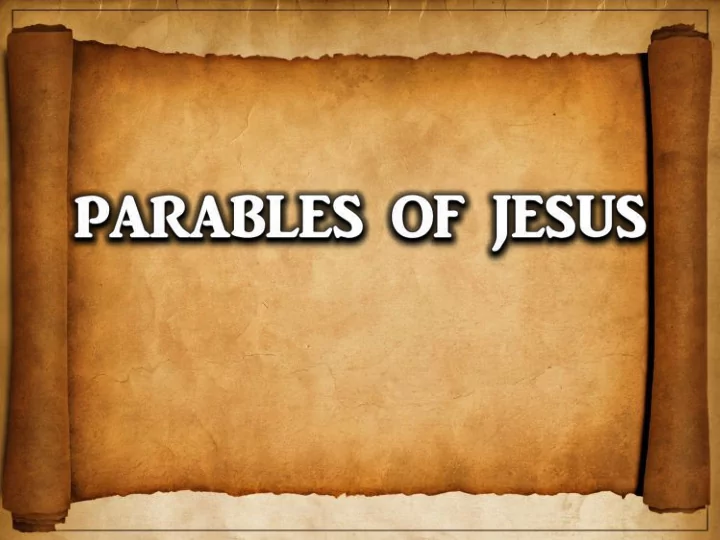

Luke 15:1-32
These parables were told in response to a • complaint of the Pharisees and scribes (Luke 15:1-2). “This man receives sinners and eats with • them.” The lesson is the same in each parable. • Each shows the joy found in heaven when • a sinner repents and turns back to God.
This parable is about a man who had a flock • of 100 sheep. One of the sheep was lost and needed to be • found. The shepherd left the 99 sheep which were • safe and found the one that was lost. “When he has found it, he lays it on his • shoulders, rejoicing” (vs. 5).
Everyone rejoiced when the man found the • one sheep which was lost! This parable demonstrates the infinite value • of a single soul. It declares emphatically that every single • soul has great value in the eyes of God. While it is true that Jesus died for the whole • world (John 3:16), don’t ever forget that Jesus also died for you!
This parable has the same point as the • previous. A woman lost a valuable coin. She did • everything she could to find it. When it was found, she rejoiced! She even • threw a party!
One soul has great value in the eyes of God. •
One soul has great value in the eyes of God. • Every sinner needs to be found. • “For the Son of Man has come to seek and to • save that which was lost.” - Luke 19:10
This is also commonly called “The Prodigal • Son.” A father has two sons. We are introduced • first to the youngest son. He seems to be immature, impatient, and • ultimately wasteful.
He asked for his inheritance early. • Once he receives it, he goes to a far away • country. There his passions run wild! He wasted his inheritance on sinful living. • Eventually, the money ran out. When a • famine occurred, he became impoverished.
He realized what a fool he had been. • “He came to his senses.” • He realized that he had it better when he lived • with his father. Even his father’s servants lived better than • his current condition.
He made up his mind to go to his father, • confess his sin against him and heaven. He would also plead to become a hired servant. The father saw his son coming afar and ran • out to meet him. To the younger brother’s surprise, his father • welcomed him home with great joy.
The father’s reaction is contrasted with the • older brother (vss. 25-30).
The father represents God. •
The father represents God. • The younger brother represents lost sinners. •
The father represents God. • The younger brother represents lost sinners. • The older brother represents the Pharisees • and scribes (Luke 15:2).
Those in heaven rejoice when sinners come • to God (Luke 15:10).
Those in heaven rejoice when sinners come • to God (Luke 15:10). All sinners are loved by God. •
Those in heaven rejoice when sinners come • to God (Luke 15:10). All sinners are loved by God. • We should avoid being like the older brother. •
Recommend
More recommend